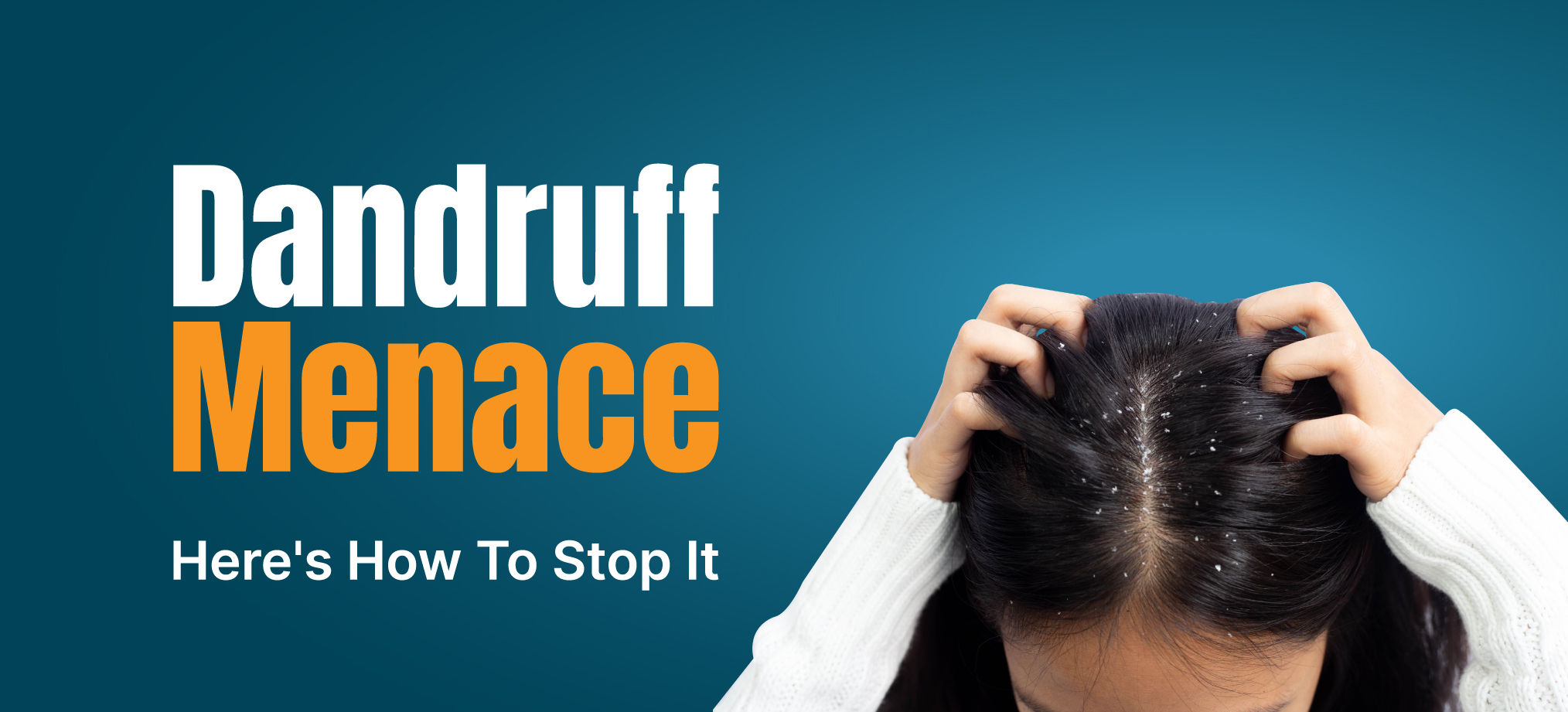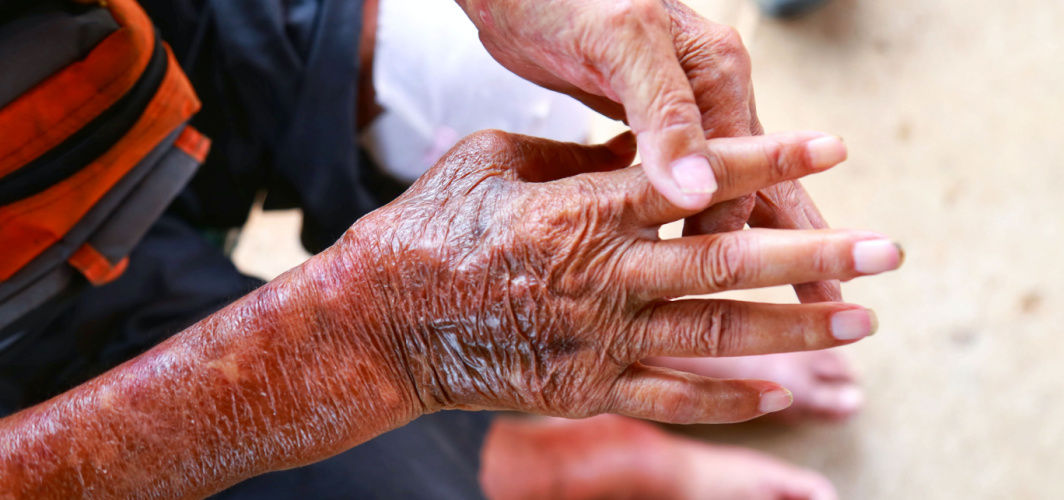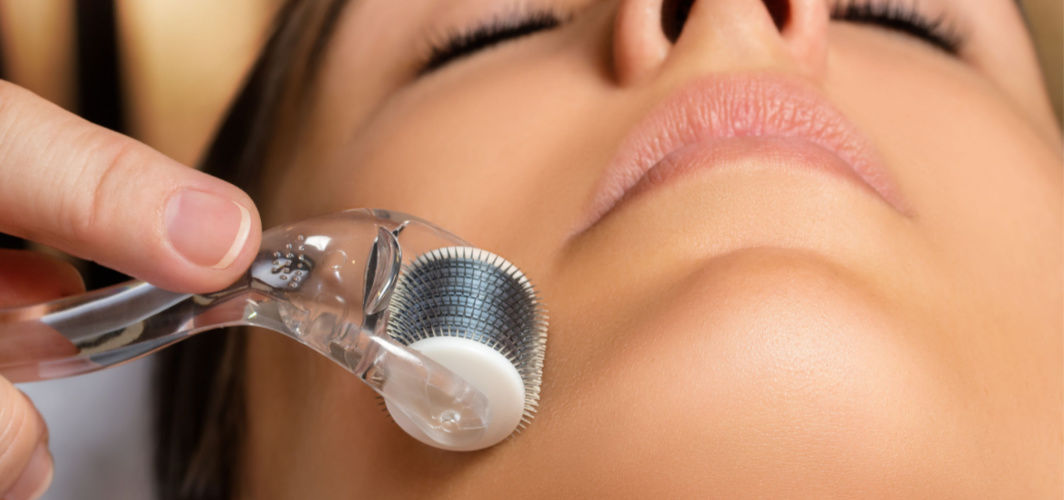Skin Care
Scientifically-Proven Ways To Deal With Dandruff
4 min read
By Apollo 24|7, Published on - 10 November 2022, Updated on - 15 May 2023
Share this article
0
1 like

Did you know that 1%-3% of adults and 42% of all infants worldwide are affected by dandruff issues? Characterised by white, itchy flakes of skin on the scalp, dandruff is one of the most common problems faced by a major chunk of the global population. In addition to being extremely uncomfortable, it can also be very embarrassing. This blog underlines the major causes and symptoms of dandruff and the best way to get rid of it.
Symptoms of Dandruff
The most prominent symptoms of dandruff are an itchy, scaly scalp and white flakes. Some other additional symptoms that may accompany dandruff include:
- Flakes on the eyebrows
- Dry flakes on the face
- Erythema (red patches on the scalp and sometimes on the face)
- Hair loss
What Causes Dandruff?
Several factors can lead to the growth of dandruff. Some of the most common causes include:
- Excessive secretion from the sebaceous glands
- Not shampooing enough causes the skin cells to accumulate, create flakes, and result in itching
- Shampooing too much leads to over-drying of the scalp
- Fungal or yeast infection on the scalp’s skin
- Excessive brushing of the hair creates too much friction on the scalp's sensitive skin
- Some hair care products can lead to contact dermatitis, making your scalp itchy and red
- Too much exposure to sunlight, dirt, or dust
- Lack of essential nutrients like biotin and vitamin B12 in the diet
How to Treat Dandruff at Home?
There are numerous highly effective home remedies you can try to clear dandruff effectively. Some of these treatment tips include:
1. Tea Tree Oil
Tea tree oil is widely known for its powerful anti-inflammatory and antimicrobial properties, which can help relieve dandruff. It is also effective against the strain of fungus responsible for causing dandruff as well as seborrheic dermatitis.
2. Coconut Oil
Coconut oil serves as an excellent natural treatment for dandruff and flaky skin. It works by preventing dryness and improving skin hydration, which considerably worsens dandruff.
3. Aloe Vera
Aloe vera possesses powerful antifungal and antibacterial properties, which can help fight dandruff-causing microbes. Moreover, it helps reduce inflammation, which in turn alleviates the symptoms of dandruff.
4. Stress Management
Stress, in itself, is not a cause of dandruff. However, it can worsen the symptoms like itching and dryness. Experiencing high-stress levels for a prolonged period can alter your immune activity and hamper the body's ability to combat skin conditions and fungal infections.
5. Apple Cider Vinegar
Apple cider vinegar is immensely helpful in stimulating the shedding of your scalp’s dead skin cells. It also helps in balancing the skin’s pH to decrease fungal growth and combat dandruff.
6. Omega-3 Intake
Omega-3 fatty acid deficiency can result in a plethora of symptoms such as dry skin, dry hair, and dandruff. Increasing the omega-3 fatty acid intake can help in regulating oil production. Moreover, these fatty acids, found in tuna, salmon, and mackerel, can help reduce inflammation, therefore reducing dandruff symptoms and irritation.
7. Baking Soda
Possessing powerful antifungal properties, baking soda serves as a gentle and mild exfoliant that reduces itchiness and removes dead skin cells. Gently rubbing it into the scalp and rinsing after a couple of minutes can do wonders. You must do a patch test before using it on your entire scalp.
8. Avoid Certain Foods
Limiting the consumption of certain food items has proven to help relieve inflammation. Moreover, studies suggest modifying your diet can improve the gut microbiome and control the growth of yeast and fungus on the skin. Certain foods that you should avoid include:
- Refined carbs like white pasta, white bread, and crackers
- Processed foods
- Red meat
- Sugary beverages and foods
- Fried foods
While the above-mentioned home remedies can be immensely helpful in treating dandruff, some cases might require additional treatment, especially if the symptoms persist or worsen. There are several over-the-counter scalp treatments and medicated shampoos that are specifically formulated to reduce dandruff and contain potent antibacterial and antifungal ingredients. In case any of these products don’t show any positive results,
Consult An Apollo Dermatologist
Medically reviewed by Dr Sonia Bhatt.
Skin Care
Leave Comment
Recommended for you

Skin Care
Scleroderma: Definition, Causes, Triggers, Symptoms, Treatments & Prevention
Discover Scleroderma: Understand its definition, causes, triggers, symptoms, available treatments, and preventive measures in this comprehensive guide.

Skin Care
Is Your Derma Roller Really Effective?
A derma roller is a handheld skin care device that contains multiple rows of tiny needles. The article explores its uses and benefits in detail below.

Skin Care
Is your tattoo ink safe? Things You Should Know Before Getting Inked
Tattoo inks can have several ingredients that can result in skin infections. Read to know how you can be more cautious before getting inked.
Subscribe
Sign up for our free Health Library Daily Newsletter
Get doctor-approved health tips, news, and more.
Recommended for you

Skin Care
Scleroderma: Definition, Causes, Triggers, Symptoms, Treatments & Prevention
Discover Scleroderma: Understand its definition, causes, triggers, symptoms, available treatments, and preventive measures in this comprehensive guide.

Skin Care
Is Your Derma Roller Really Effective?
A derma roller is a handheld skin care device that contains multiple rows of tiny needles. The article explores its uses and benefits in detail below.

Skin Care
Is your tattoo ink safe? Things You Should Know Before Getting Inked
Tattoo inks can have several ingredients that can result in skin infections. Read to know how you can be more cautious before getting inked.